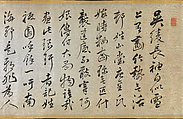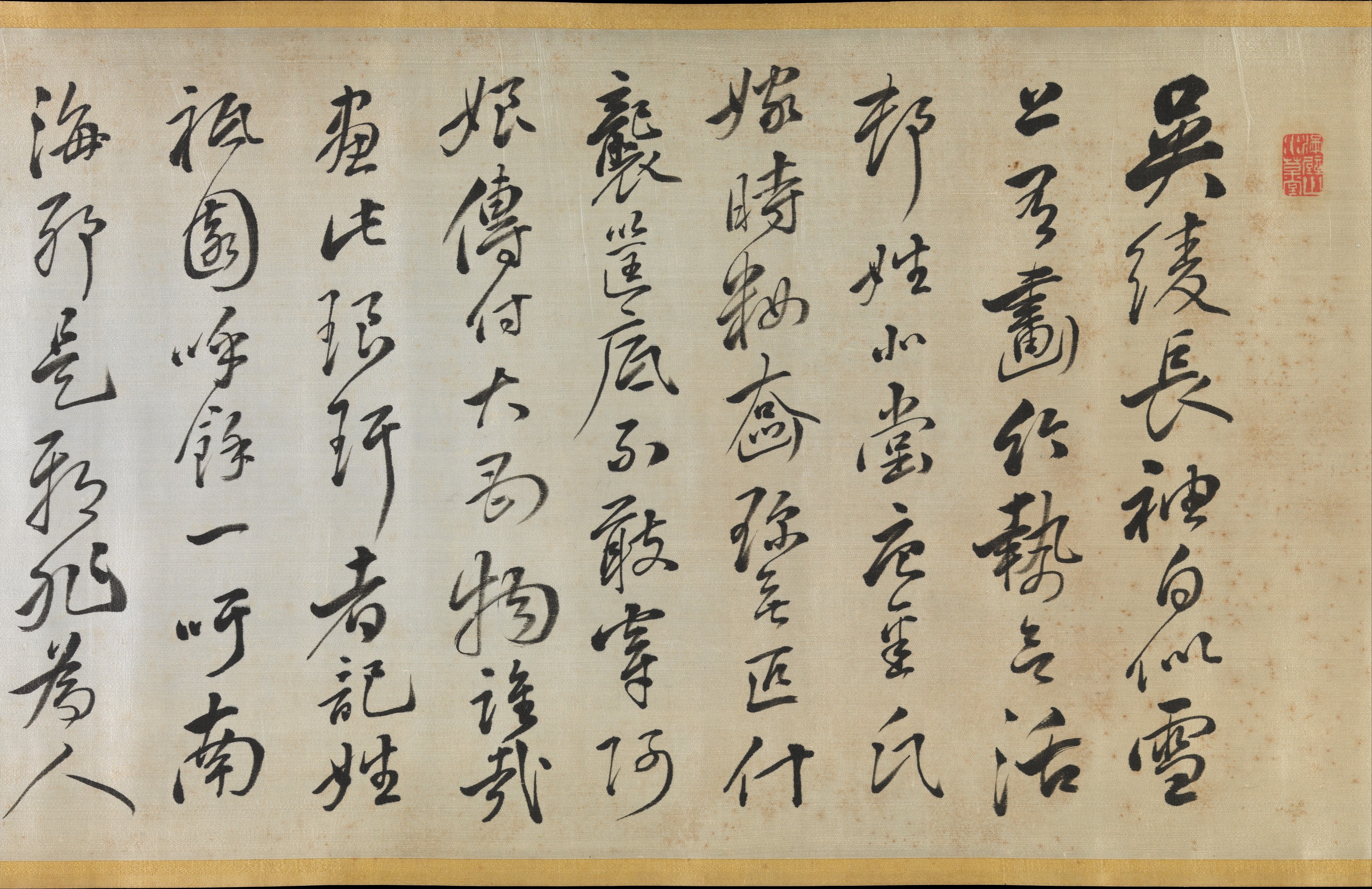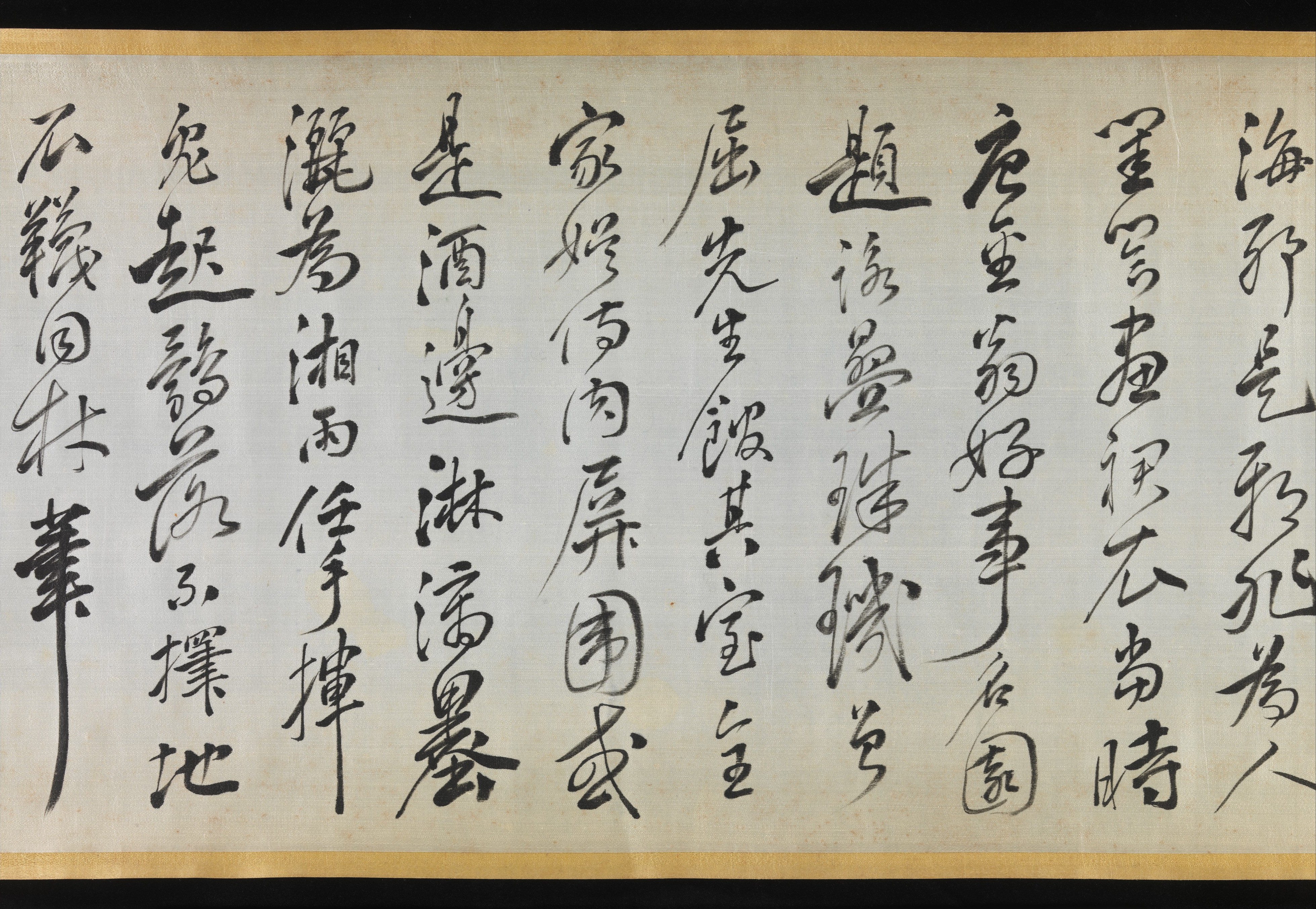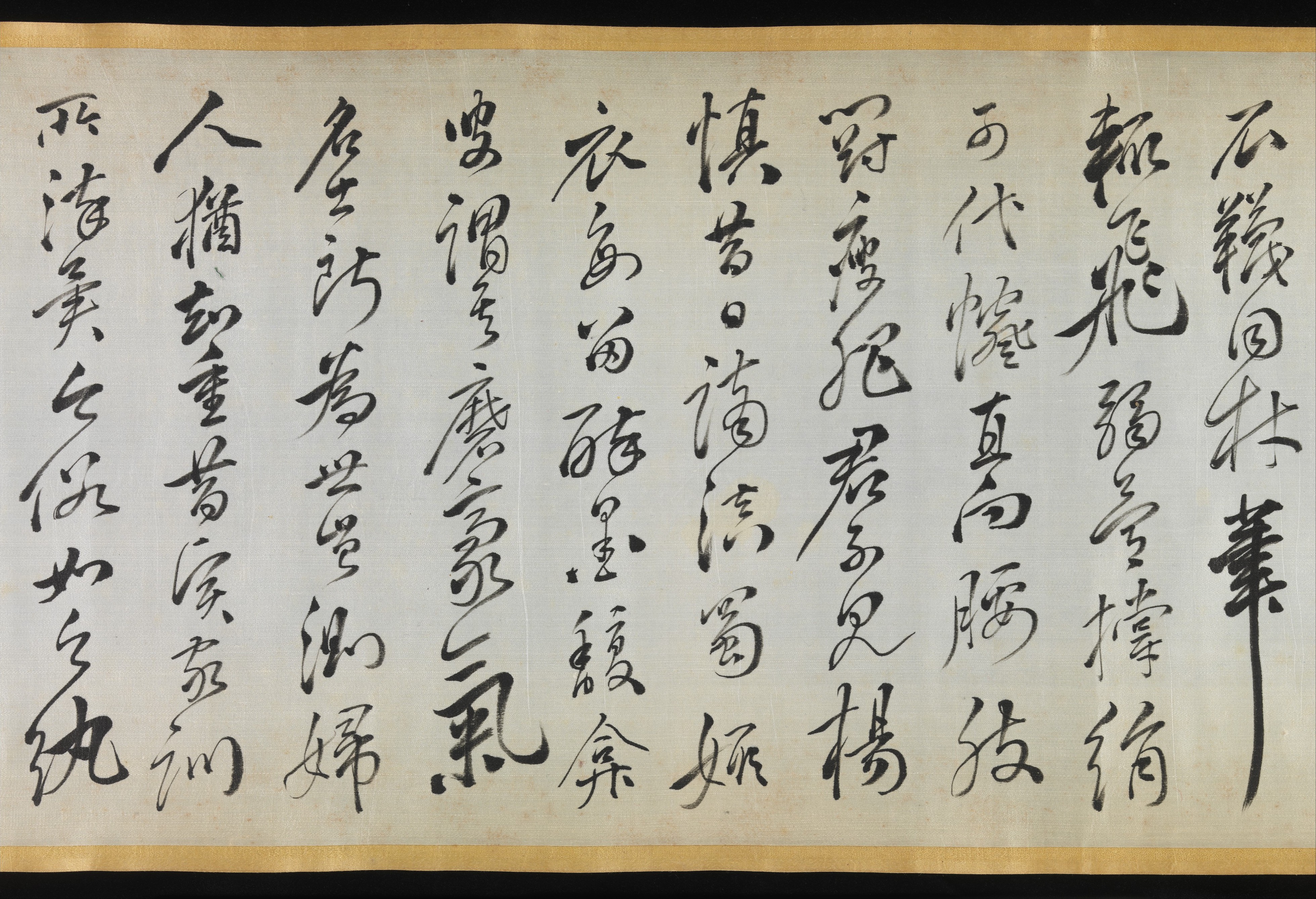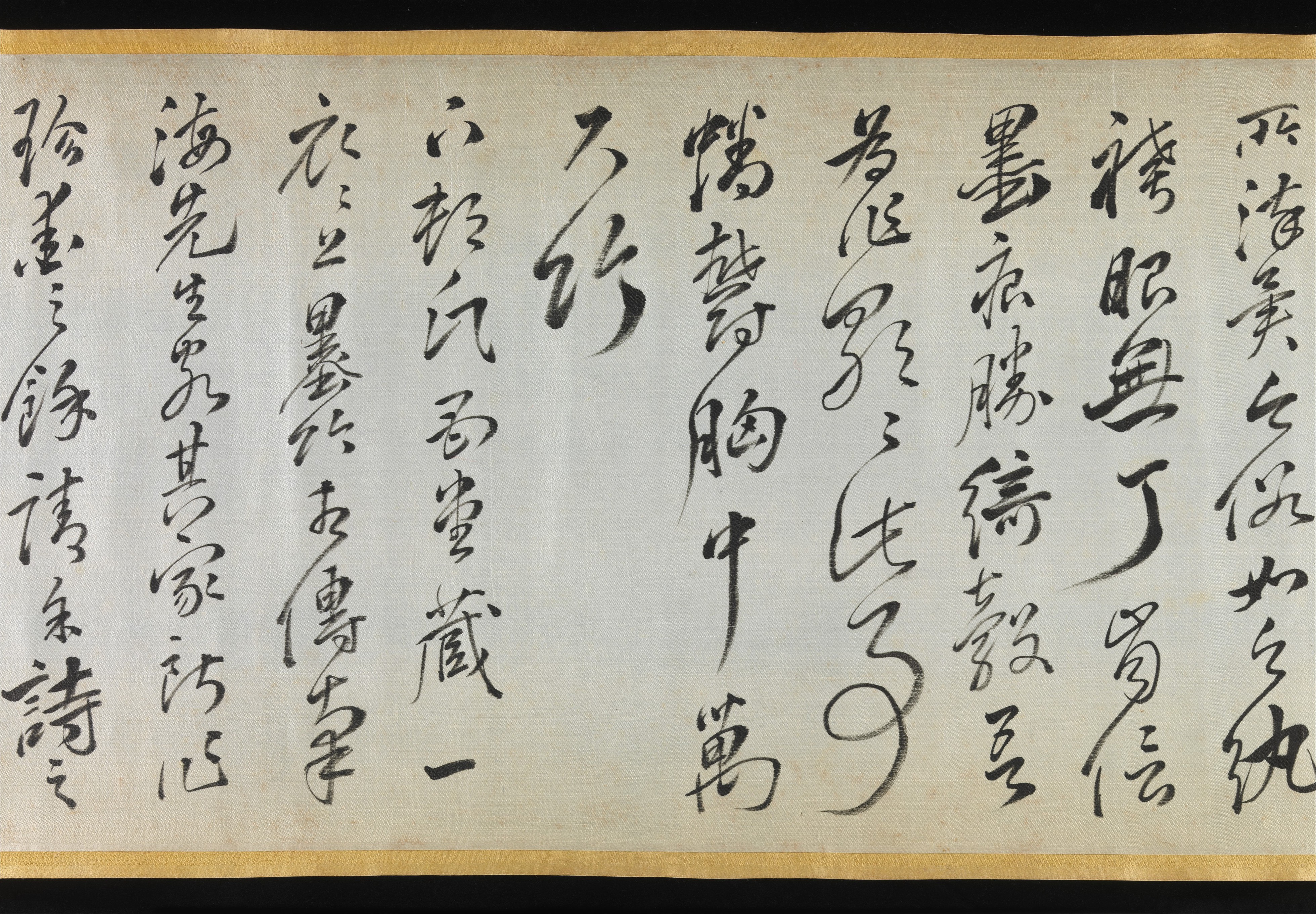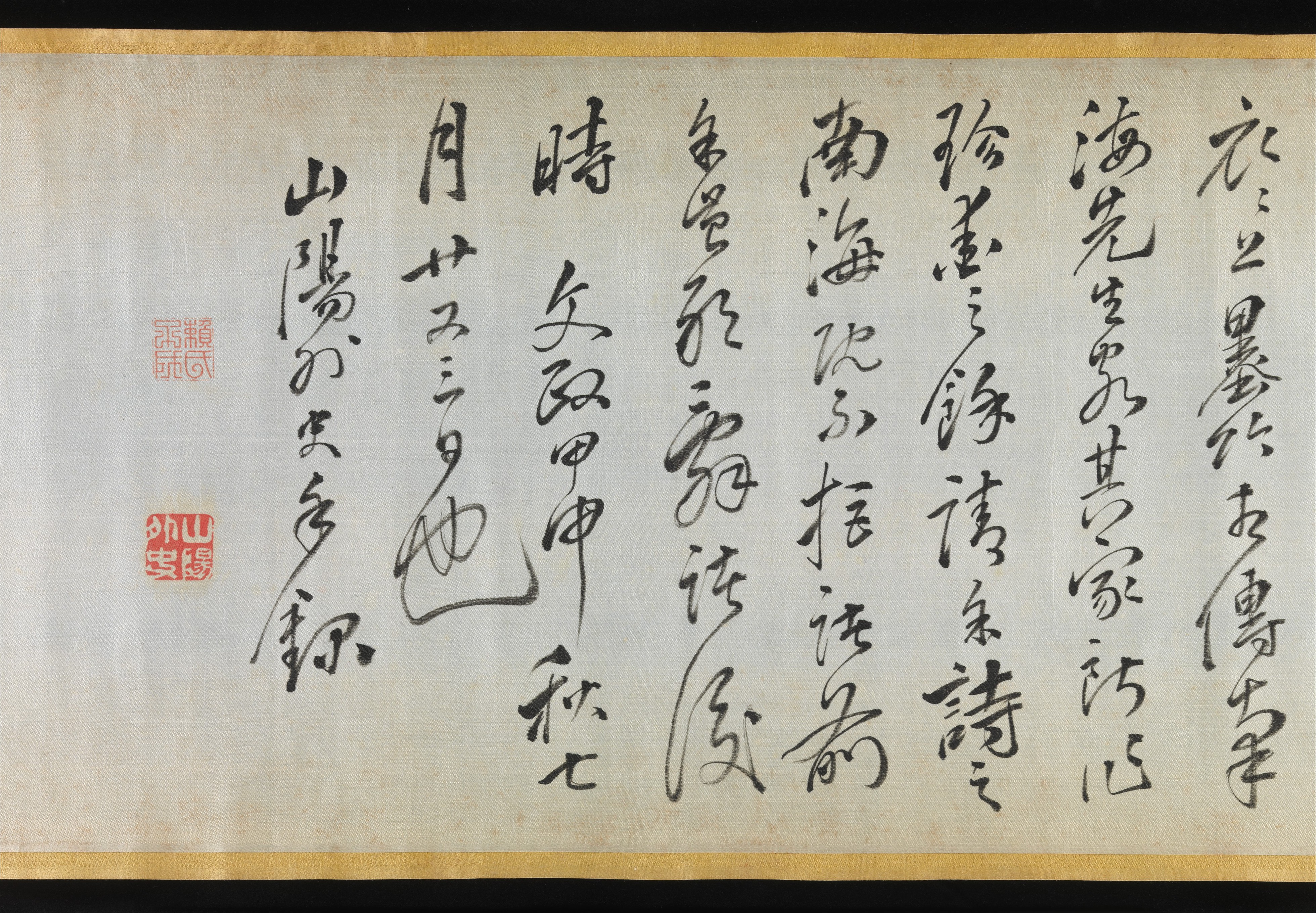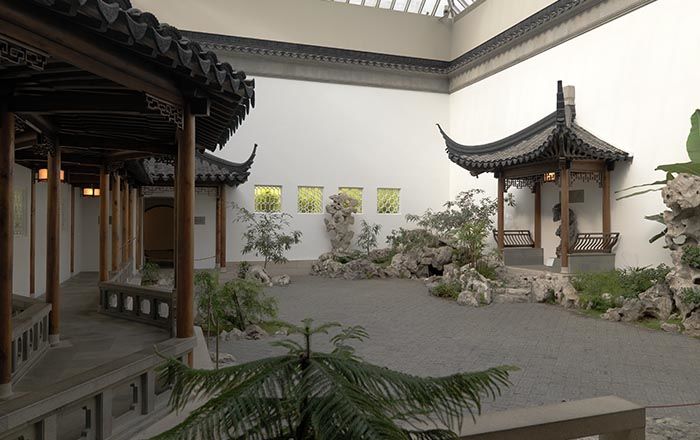Poem Accompanying an Over Robe (Uchikake) with Bamboo by Gion Nankai (1677–1751)
Rai San’yō 頼山陽 Japanese
Not on view
The Confucian scholar, Nanga-school painter, calligrapher, and poet Rai San’yō was born in Osaka and studied in Hiroshima and Edo before decamping to Kyoto in 1811, where he opened a school and devoted himself to the writing of kanshi poetry (verses composed in Chinese by Japanese authors). This handscroll with his verse was commissioned by the owners of a rare silk-satin over robe with a bamboo forest painted in ink by the renowned Nanga artist Gion Nankai (1975.268.88). The garment had been treasured for generations by the Karakane family, and the poem, in expertly and crisply brushed Chinese characters, was intended to celebrate its inclusion in the trousseau of a young Karakane woman.
Because of San'y’ō's status as one of the leading Chinese-style calligraphers of the day, this scroll has been cherished over the centuries and preserved together with the precious silk robe. This poem scroll is accompanied by two other documents in andscroll format: one records the provenance of the over robe that Nankai painted and how San’yō was inspired to brush this elegant encomium (1975.269.90); the other is an authenticity statement (1975.269.91).
Due to rights restrictions, this image cannot be enlarged, viewed at full screen, or downloaded.
This artwork is meant to be viewed from right to left. Scroll left to view more.
